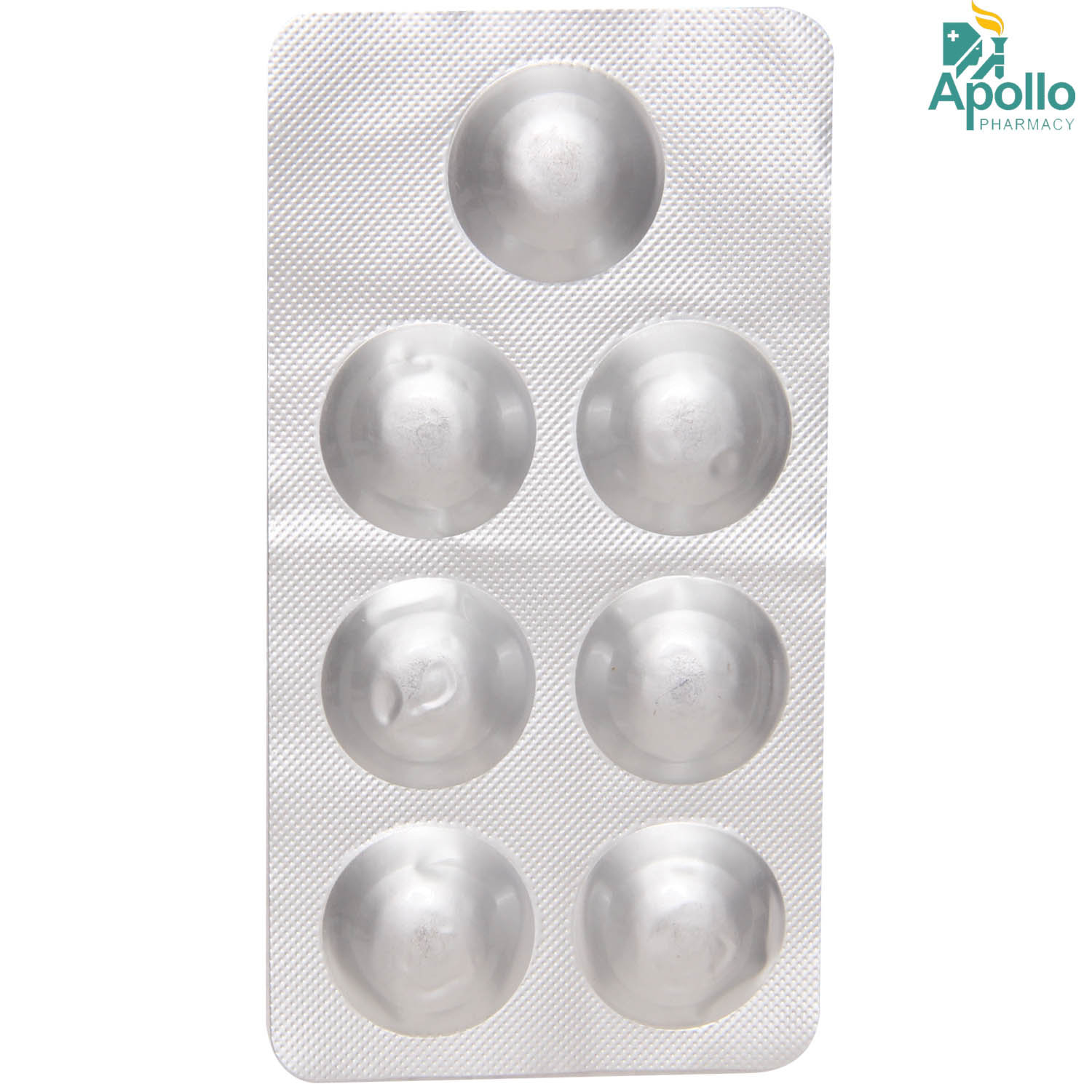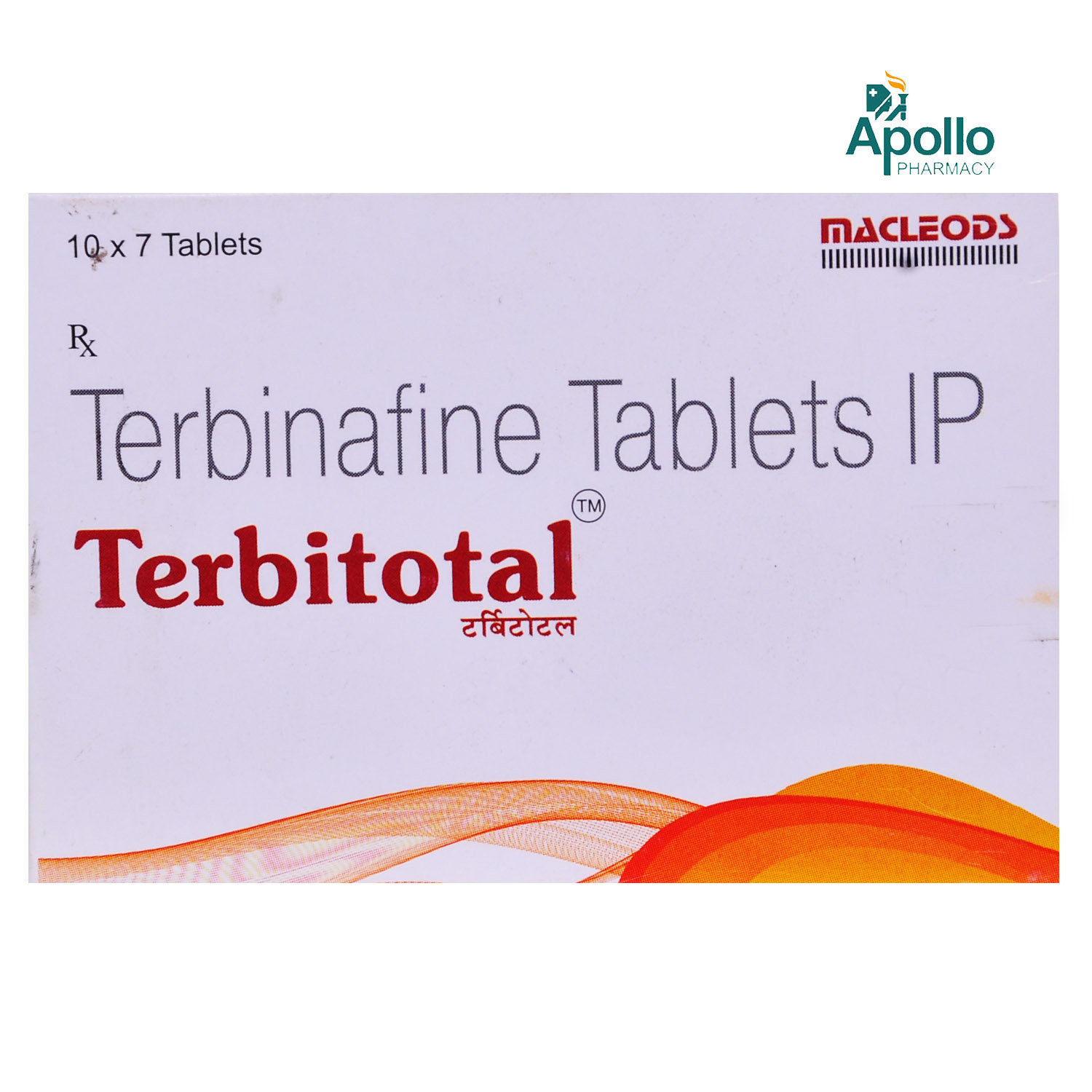Terbinafine
About Terbinafine
Terbinafine is used to treat fungal infections of toenails and fingernails. It is also used to treat tinea capitis (scalp ringworm). Fungal nail infections (onychomycosis) are common infections of toenails or fingernails that cause the nail to become thick, discoloured, or more likely to break.
Terbinafine contains Terbinafine, which works by damaging the fungal cell membranes, which are essential for their survival as they prevent the entry of unwanted substances into the cells and stop the leakage of cell contents.
Some people may experience diarrhoea, stomach pain, headache, and a change in taste or loss of taste. Most of these side effects of Terbinafine do not require medical attention and gradually resolve over time. However, if the side effects persist or worsen, please consult your doctor.
If you are allergic to Terbinafine, avoid taking Terbinafine. If you are pregnant or breastfeeding, it is recommended to consult a doctor before using Terbinafine. If you have depressive symptoms such as feeling worthless or sad, loss of interest or energy in daily activities, mood changes, restlessness, or a change in sleep pattern, inform your doctor immediately.
Uses of Terbinafine
• Treatment of onychomycosis: Terbinafine is usually prescribed for fungal infections of the fingernails and toenails.
• Management of tinea corporis: Terbinafine is used to treat ringworm infections throughout the body.
• Relief of tinea cruris: Terbinafine is used to manage fungal infections in the groin area, also known as jock itch.
• Control of tinea pedis: Terbinafine effectively treats athlete’s foot, a fungal infection of the feet.
• Treatment of tinea capitis: Terbinafine is used to treat scalp ringworm, especially in children.
• Support in resistant fungal infections: Terbinafine is used to treat fungal infections that do not respond well to topical treatments.
Medicinal Benefits
- Terbinafine is an antifungal medicine used to treat fungal infections of toenails and fingernails.
- It is also used to treat tinea capitis (scalp ringworm).
- Terbinafine destroys fungal cell membranes that are essential for their survival and stop the leakage of cell contents.
Directions for Use
- Terbinafine can be taken with or without food as advised by your doctor.
- It is usually taken once daily; however, follow your doctor's advice regarding the dosage and duration.
- Swallow the medicine as a whole with a glass of water.
- Do not crush, chew or break it.
Storage
Side Effects of Terbinafine
- Diarrhoea
- Indigestion
- Stomach pain
- Headache
- Taste disturbance
- Nausea
- Flatulence (gas)
Drug Warnings
- If you are allergic to terbinafine, avoid taking Terbinafine.
- If you are pregnant or a nursing mother, it is advised to consult a doctor before using Terbinafine.
- Avoid or limit sun exposure while using Terbinafine as it may make skin more sensitive to sunlight.
- Wear protective clothing and use sunscreen while going out to protect your skin from sunburn.
- If you have lupus (an autoimmune disease), a weakened immune system, kidney or liver problems, inform your doctor before taking Terbinafine.
- If you have depressive symptoms such as feeling worthless or sad, loss of interest or energy in daily activities, mood changes, restlessness, or a change in sleep pattern, inform your doctor immediately.
Drug Interactions
Drug-Drug Interaction: Terbinafine may interact with drugs used to treat stomach ulcers (cimetidine), antibiotics (rifampicin), antifungal (fluconazole), medicine used to treat high blood pressure (metoprolol), antidepressants (duloxetine, desipramine), opioid pain killers (codeine, tramadol), blood thinners (warfarin), heart-related medicines (amiodarone) and immunosuppressant (ciclosporin).
Drug-Food Interaction: Terbinafine may interact with caffeine. Therefore, avoid foods containing chocolate and caffeine, such as cocoa beans, tea, coffee, cola, and energy drinks, as they may increase the adverse effects of caffeine.
Drug-Disease Interaction: If you have lupus (an autoimmune disease), a weakened immune system, kidney or liver problems, inform your doctor before taking Terbinafine.
Drug-Drug Interactions Checker List:
Safety Advice

Alcohol
consult your doctorInteraction of alcohol with Terbinafine is unknown. Please consult a doctor before consuming alcohol with Terbinafine.

Pregnancy
consult your doctorTerbinafine is a Category B pregnancy drug and is given to a pregnant woman only if the doctor thinks the benefits outweigh the risks.

Breast Feeding
unsafeTerbinafine may be excreted in human milk and harm the baby. Therefore, it is not advised for breastfeeding mothers.

Driving
cautionTerbinafine may cause dizziness. Therefore, drive only if you alert after taking Terbinafine.

Liver
consult your doctorIf you have liver disease, inform your doctor before taking Terbinafine. Your doctor may adjust the dose or prescribe a suitable alternative based on your condition.

Kidney
consult your doctorIf you have kidney problems, inform your doctor before taking Terbinafine. Your doctor may adjust the dose or prescribe a suitable alternative based on your condition.

Children
unsafeTerbinafine is not recommended for children below 12 years as the safety and effectiveness were not established.
Habit Forming
Diet & Lifestyle Advise
Fungal nail infections (onychomycosis):
- Keep your feet and hands clean and dry.
- Cut your toenails and fingernails short and keep them clean.
- Avoid sharing nail clippers with others.
- In wet places such as changing rooms and gym showers, wear footwear to prevent fungal infections.
- Choose a clean and licensed salon and make sure that all the instruments in the salon are sterilised after each use.
- Avoid sun exposure while taking Terbinafine as it may make skin more sensitive to sunlight. Wear protective clothing and use sunscreen while going out to protect your skin from sunburn.
Tinea capitis (scalp ringworm):
- Shampoo your child's scalp regularly, especially after a haircut.
- Use scalp conditioning products such as pomades with selenium and coconut oil, as they might help to prevent scalp ringworm.
- Make sure your children wash their hands regularly, even after playing with pets, and keep their skin clean and dry.
- Avoid infected animals.
- Keep shared areas clean, especially childcare centres and schools.
- Teach children to avoid sharing personal items such as towels, clothing, hairbrushes, etc.
Special Advise
Your doctor may advise blood tests before you start Terbinafine to check for liver problems.
Patients Concern
Disease/Condition Glossary
Fungal nail infections (onychomycosis): They are common infections of toenails or fingernails caused by different types of fungi living in the environment. These germs enter the nail through small cracks in the nail or surrounding skin and cause infection. The symptoms include thick, or discoloured (brown, yellow or white) nails and nails more likely to break. Unless it becomes severe, it is usually not painful. Fungal infections are more common in toenails than in fingernails.
Tinea capitis (scalp ringworm): It is a fungal infection of the scalp that involves both hair and skin. It is contagious, and the symptoms include dry, itchy, scaly patches, hair loss and redness. The name ringworm is due to its circular shape. It mostly occurs in children between 3 to 7 years of age.
FAQs
Terbinafine is used to treat fungal infections of toenails and fingernails.
Terbinafine works by damaging the fungal cell membranes that are essential for their survival, as they prevent the entry of unwanted substances into the cells and stop the leakage of cell contents. Thereby, kills fungi and clears the fungal infection.
You are recommended to avoid foods containing chocolate and caffeine, such as cocoa beans, tea, coffee, cola and energy drinks, while taking Terbinafine as it may increase the adverse effects of caffeine.
Terbinafine may increase the skin sensitivity to sunlight. Therefore, avoid or limit exposure to sunlight and sunlamps. You are advised to use sunscreen and wear protective clothing while going out to prevent sunburn. However, if you notice any unusual skin sensitivity while using Terbinafine, such as a rash, please consult a doctor.
Terbinafine may cause changes in taste or loss of taste as a side effect. It may usually improve within several weeks after stopping Terbinafine, but may become permanent or last for a long time. However, if you have a poor appetite, unintended weight loss, loss of taste or changes in taste or a change in mood or depressive symptoms, inform your doctor.
You are not recommended to stop using Terbinafine without consulting your doctor, as it may cause recurring infections. Therefore, take Terbinafine for as long as your doctor has prescribed it, and if you experience any difficulty while taking Terbinafine, please consult your doctor.
Terbinafine is not recommended for patients with chronic or active liver disease. Your doctor may recommend a liver function test to monitor whether your liver is functioning effectively. This is done since the medicine gets metabolised by liver enzymes, and any inefficiency in liver function can lead to increased levels of Terbinafine in the blood, resulting in increased side effects and toxicity. Therefore, inform your doctor if you have any liver disease or cirrhosis and about the medicines you may be taking, as taking Terbinafine with another medicine can lead to liver toxicity.
Yes, Terbinafine may cause skin reactions in sensitive people. There are rare reports of people developing serious skin/hypersensitivity reactions like toxic epidermal necrolysis, Stevens-Johnson syndrome, and other severe skin reactions with Terbinafine. Therefore, do not take Terbinafine without consulting your doctor. If you experience any type of skin reaction or rashes, stop taking it immediately and inform your doctor.
Terbinafine is effective as an antifungal medicine if taken in the dose and duration advised by your doctor. Do not discontinue taking it even if you see improvement in your condition. If you stop taking Terbinafine too early, the fungus may continue to grow and the infection may recur or worsen.
You are recommended to take Terbinafine for as long as your doctor advises. The usual duration of treatment for Tinea corporis (ringworms), Tinea pedis (fungal infection in the foot), and Tinea cruris (fungal infection in the groin) is about 2 to 4 weeks, though it can occasionally be extended to 6 weeks. Treatment for fungal infections of nails typically varies from 6 to 12 weeks, with fingernail fungal infections taking up to 6 weeks and toenail fungal infections taking up to 12 weeks. However, the exact duration is determined by the doctor, depending on the site of infection, the type of infection, and the patient’s response to the therapy.
Caffeinated drinks such as tea and coffee should be taken with caution while on treatment with Terbinafine. Terbinafine decreases the metabolism rate of caffeine by 19% which is a key constituent of coffee, thereby increasing the caffeine levels in the blood and may lead to side effects such as headache, jitteriness, increased heartbeat, and restlessness.
Yes, Terbinafine can be taken with or without food.
Terbinafine may cause side effects such as nausea, indigestion, diarrhea, stomach pain, taste disturbance and headache. If these side effects persist or worsen, please consult your doctor.
Avoid alcohol consumption while taking Terbinafine and use sunscreen while going out in the sun, as Terbinafine may increase skin sensitivity. Regular monitoring of liver function is recommended while taking Terbinafine.
Pregnant and breastfeeding women are advised to consult their doctor before taking Terbinafine to discuss the possible risks and benefits.
If you suspect an overdose of Terbinafine, seek medical help immediately. Symptoms may include dizziness, nausea, and vomiting.








